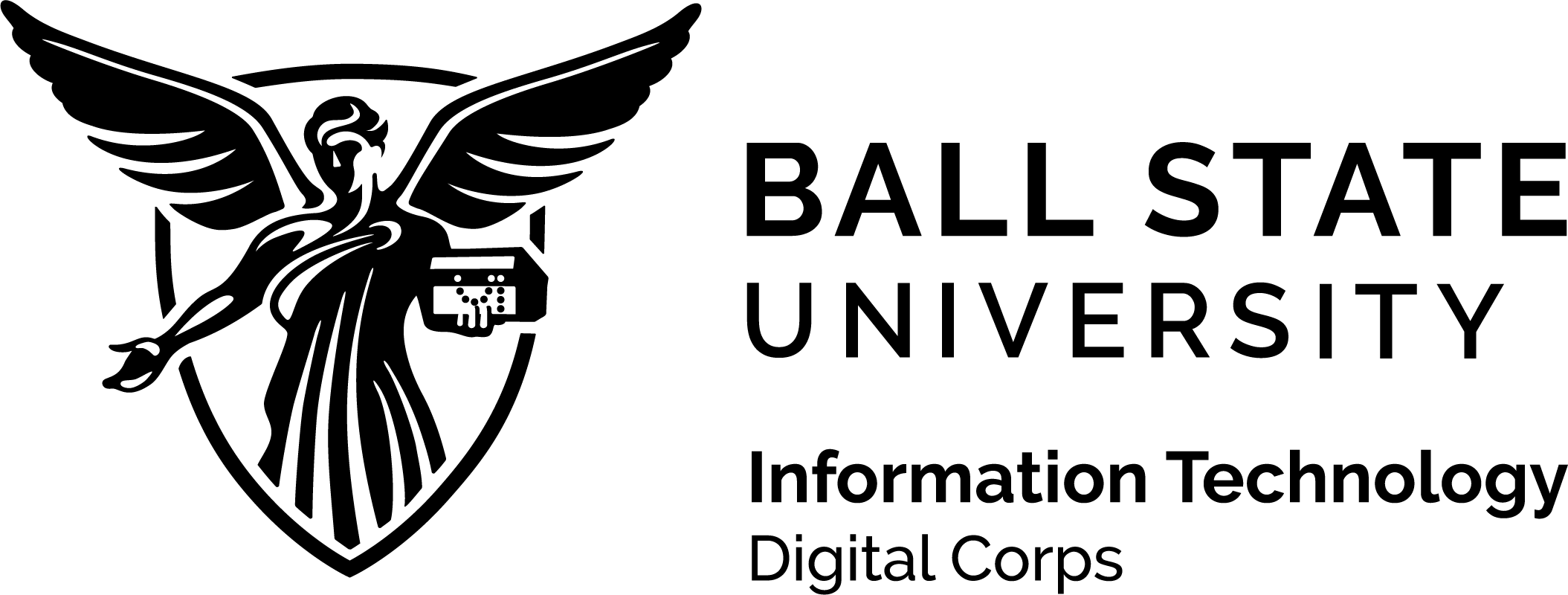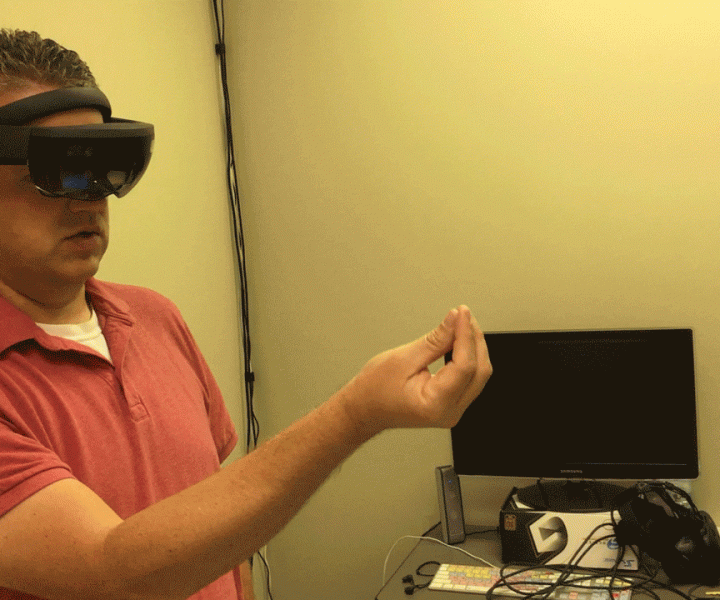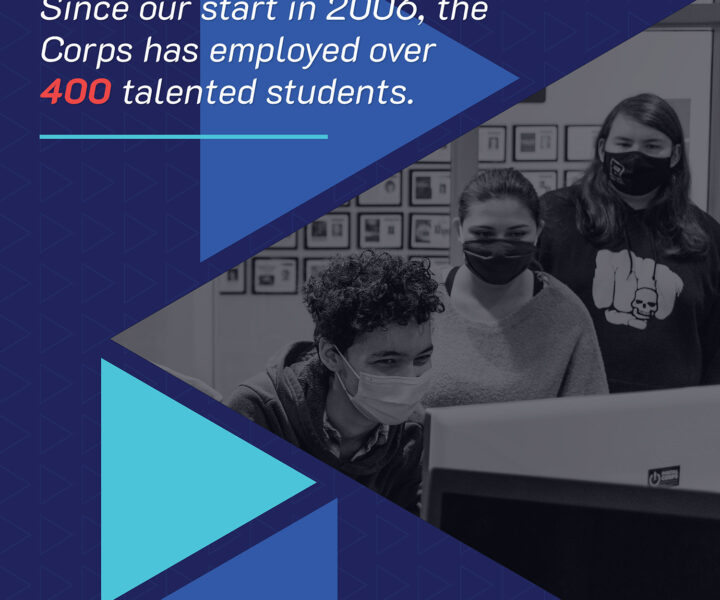At any given moment in time, the Digital Corps is handling dozens of projects that range from building websites to producing videos. While we have a great team of staff to guide us through the process, it’s nearly impossible to expect them to remember every detail of every individual student’s progress. That’s where our Project Management (PM) Team comes in.
The Digital Corps has been practicing project management since about 2016, with primarily staff managing everything, and students working as Junior Project Managers (JPMs). A dedicated team of Project Management students was established in 2017. Bringing in students with great organizational, communication, and problem-solving abilities helped establish better flow for projects at the Corps.
What is project management?
The Project Management Institute says that project management is “The use of specific knowledge, skills, tools and techniques to deliver something of value to people.” PMs are needed in many fields of work, like construction, information technology, and business. Their responsibilities vary throughout the “project lifecycle” to ensure team members stay on track and utilize their time efficiently.
Northeastern University identifies five phases that PMs typically refer to throughout a project’s lifecycle. The phases are initiating, planning, executing, monitoring/controlling, and closing. In project management, these are viewed less as “steps” and more as “processes,” as a project can go back and forth between phases of work.
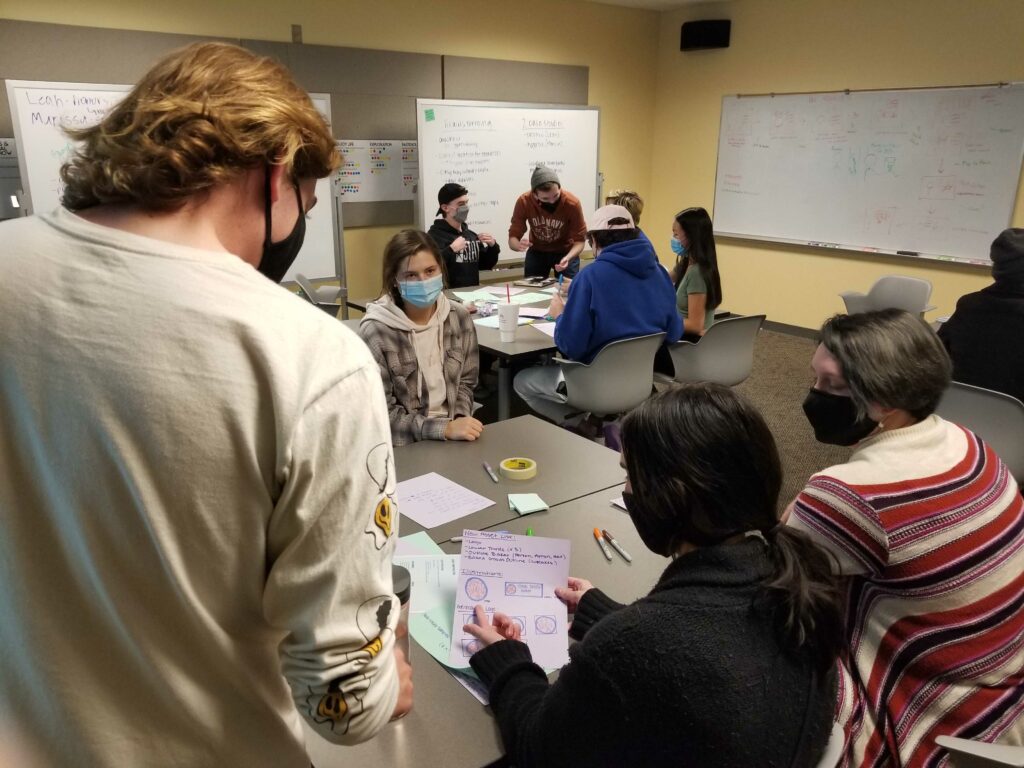
How do we compare to other agencies?
Krista Finley, the Digital Corps’ Project Management Team Lead, has been doing account and project management for over five years. Her work in her previous jobs has given her the experience and knowledge to teach our students about the skills needed to be successful PMs and JPMs.

Some skills that Finley says are necessary are communication and leadership. “You also have to be able to wear two different hats. You wear your client hat and talk to them and be able to bring it back to your team and tell them the news,” Finley said. There’s also a necessity to be quick on your feet and being a problem solver. “You have to be able to figure things out. You need to be ready to pivot, or to learn new things.”
Finley says that the Digital Corps’ agency-style of project work is similar to the way other agencies work. Some big differences are project length, team structures, and approaches to work. Many agencies have quick turnaround times for projects that constantly rotate, while the Digital Corps has a set number of projects in a semester that generally take the entire time.
What do the PM students do?
PMs are often asked what they get paid to do all day. The answer goes far beyond “looking at calendars.”
Drew Wiltberger was hired onto the PM Team in the Spring of 2020. As a Media major, he was already familiar with the process of producing videos, so he had a bit of knowledge about some projects he’d be expected to handle at the Corps, but didn’t have a lot of understanding of what skills he would need to be a PM.

As he went through training, he realized how much of project management was a hands-on process. “It’s a lot of softer skills. It’s about communication, a lot of understanding logistics. Being able to strategize and communicate with people is important,” Wiltberger said.
Being a PM at the Digital Corps involves dedicating a lot of time to learn about the work that each team does. As part of PM training, each week they’re assigned to look at the various projects a team is working on and study their processes. This part of training allows PMs to better understand how fast certain tasks can get done and how to plan out realistic project timelines.
How do we manage the projects?
The Digital Corps has used a few tools to track work time and progress on projects. For a few years, Basecamp was our go-to platform to assign teams to tasks and plan out project schedules.
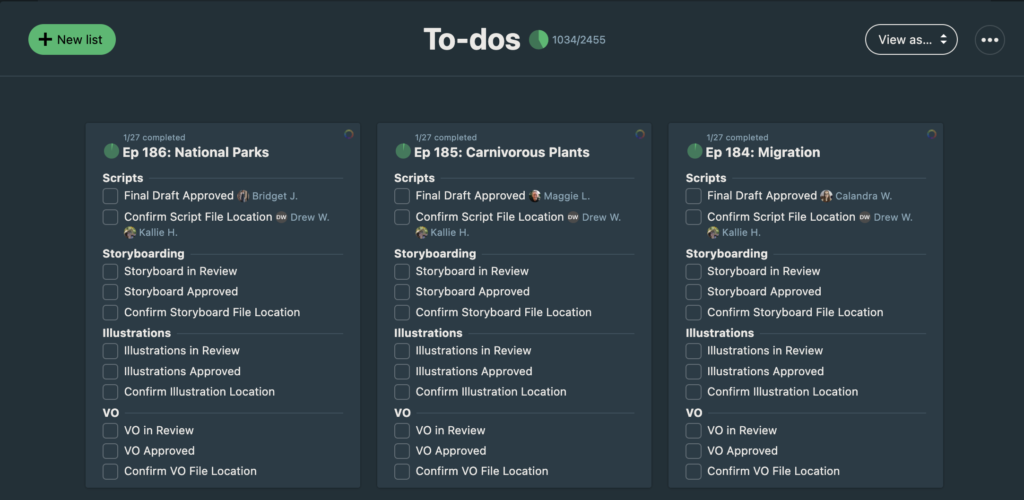
In late 2021, the office migrated to using ClickUp, a project management platform that allows us to organize our individual dashboards for tasks and track our time on each of them.
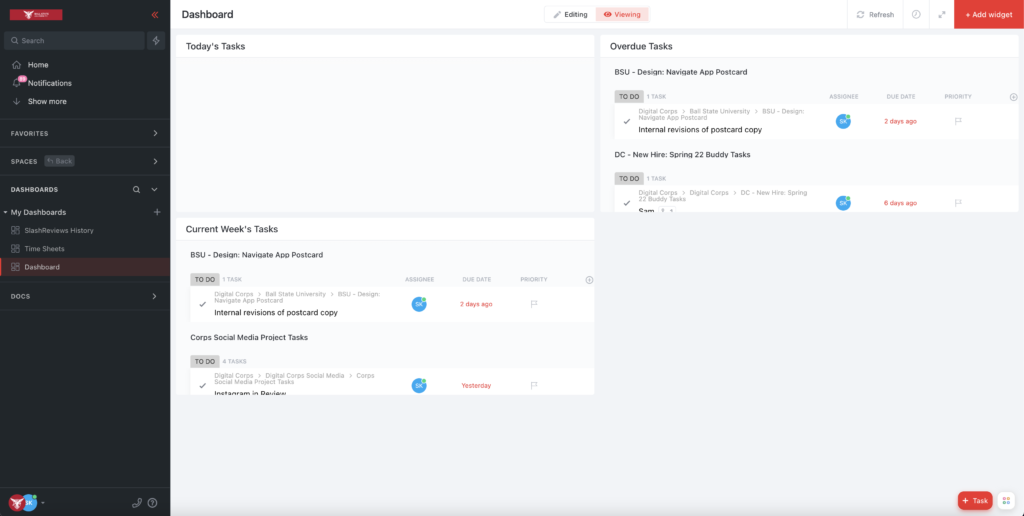
Basecamp and ClickUp are just two of many possible platforms that can be used for project management. An old-fashioned excel spreadsheet can get the job done, too.
What about Junior Project Managers?
With more active projects than the number of employees happening in a single semester, our PM team can get out-numbered. JPMs help by sharing responsibilities with the PM on a project, as well as keeping organized notes and doing check-ins with team members to make sure the project is running smoothly.
Each semester, students have the chance to take JPM training. The training lasts the whole semester and teaches students how to manage project meetings, notes, and schedules. The training process is very hands-on and requires a lot of attention to detail.

Hailey Leonard, a UX Master and long-time JPM, says that a big part of it is making the lives of the PMs easier. Being a JPM requires being an effective communicator between team members and PMs. “Both regarding making sure everyone is on the same understanding level, but also sometimes you need to have those conversations, like, ‘Hey, this is overdue, where is it?’” Leonard said.
Having the knowledge and training to be a JPM is a useful skill to have in the workplace and in academics; that’s why the Corps allows any student to become a JPM, to broaden their skillset and prepare them for the future. Being able to organize and plan a project helps ease the distribution of work and puts all team members on the same page.
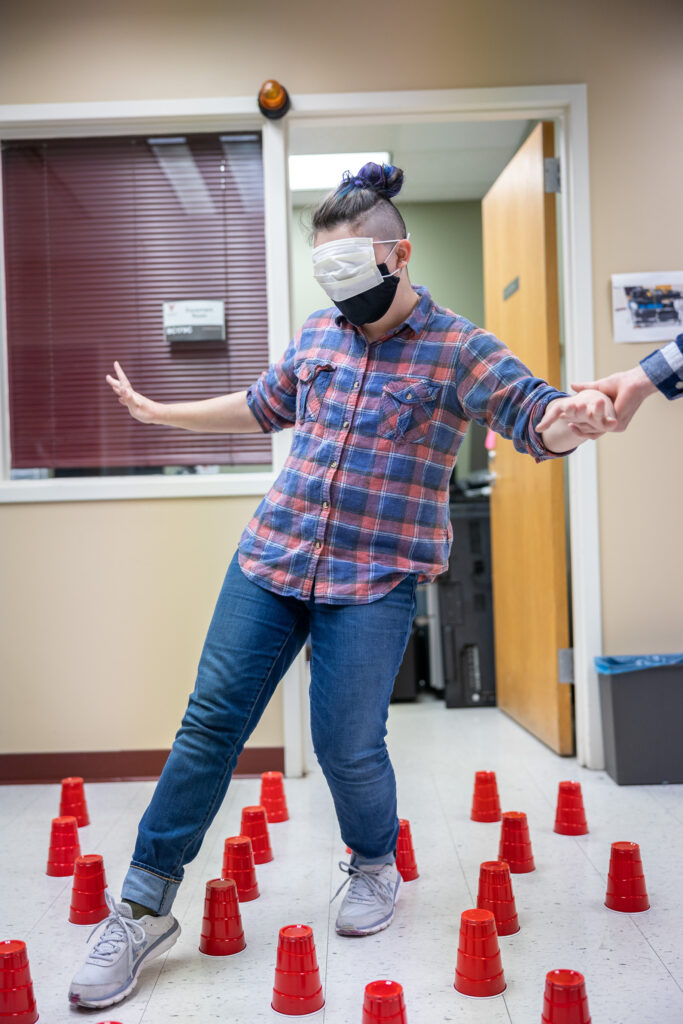
Managing over 50 students with varying work schedules is a large task for a handful of staff that already have a lot on their plate. Our PM Team, with the help of JPMs, makes managing schedules, project workflow, and team communication more efficient. As our workload grows, our small but mighty PM Team develops new skills and strategies to help keep everyone organized and sane.
